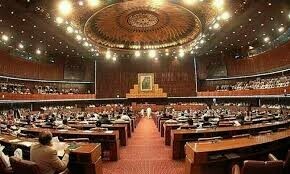WHISTLEBLOWING is not for the faint-hearted. Careers can be ruined, marriages strained, and pariah status is almost guaranteed. Nevertheless, a whistleblower from software company Autonomy decided to step forward and tell their new bosses at Hewlett Packard about alleged financial irregularities in the business.
HP has since written off $8.8bn from the value of Autonomy which it bought for $10bn less than a year earlier, and informed the FBI and Securities and Exchange Commission.
As for the whistleblower, rather than facing the sack, he or she could be entitled to a multimillion-dollar payout thanks to new US laws. Rules introduced by the Wall Street regulator mean a whistleblower can get up to a 30 per cent cut of any fine handed out for wrongdoing.
But former whistleblowers are less convinced such incentives are necessary and say they acted on their conscience rather than the thought of any financial reward.
Paul Moore, the former head of group risk for HBOS who was sacked after warning the board it was taking excessive risks, turned whistleblower in 2009 having taken a payoff and signing a confidentiality agreement.
He said: “Money was never a consideration and I don’t think it would have been. I was earning hundreds of thousands a year as one of the biggest compliance officers in the country. By comparison, last year I earned £15,000.
“I took the decision to speak out on the night Lehman Brothers went down. I was breaching a confidentiality agreement but I thought the greatest good for the greatest number of people was to speak up because it would feed into the policy debate.” But the fallout left him unable to work in banking again, turning to drink and putting a strain on his family life.
The US tax authorities have similar reward schemes. Earlier this year a former UBS banker, Bradley Birkenfeld, was given $104m for assisting the US tax authorities with its investigation into Swiss bank accounts. He was paid the money out of a $780m fine for the bank.
However, former Olympus chief executive Michael Woodford, who exposed a £1bn fraud at the company before he was sacked, warned against such large payouts. “I agree with the principles of having some financial protection for people going forward,” he said, “but there should be a limit of around $2m.
“Look at the UBS whistleblower who got $100m. That’s like winning the Euromillions and it’s not morally justified to pay such a huge amount. That money should have gone to the state imposing the fines.”
There are no state-sanctioned financial incentives for whistleblowers in the UK, and the City regulator is unlikely to follow America’s lead.
Despite this, a survey by risk advisers Kroll found UK employees were responsible for nearly one in four tip-offs the SEC gets from foreign employees, suggesting financial incentives could increase the number of whistleblowers coming forward to the UK’s Financial Services Authority.
But while the UBS whistleblower, Birkenfeld, is counting his millions, sometimes going public can have a different outcome.
Former Enron vice-president Sherron Watkins was sacked from the company for raising issues around fraud. She turned whistleblower, but never worked in the sector again and now gives talks on corporate governance, having written books on her experience with Enron.
Another famous whistleblower, Karen Silkwood, was immortalised by Meryl Streep in the 1983 film Silkwood. She died in mysterious circumstances after she turned whistleblower on the Kerr-McGee plutonium plant where she worked. She suffered radiation poisoning, leading to her investigating wrongdoing at the company, but on her way to meet a journalist, she died in an unexplained car crash.
Dr Rita Pal, a British whistleblower in the tax-funded National Health Service who exposed patient neglect in a North Staffordshire hospital, said: “The main consequence of whistleblowing is that the pariah effect makes you essentially unemployable due to the perceptions people have. I do have regrets on occasion when I look at the personal consequences. I am a human being after all and the devastation to my life has been incredible.”
But Woodford, formerly of Olympus, believes the situation is changing. “Since I became a whistleblower, I’ve been offered the presidency of a Japanese firm and chairmanship of a British company, so I hope that encourages others to speak out. As the world sees scandal after scandal, people shouldn’t fear standing up.” — The Guardian, London










































